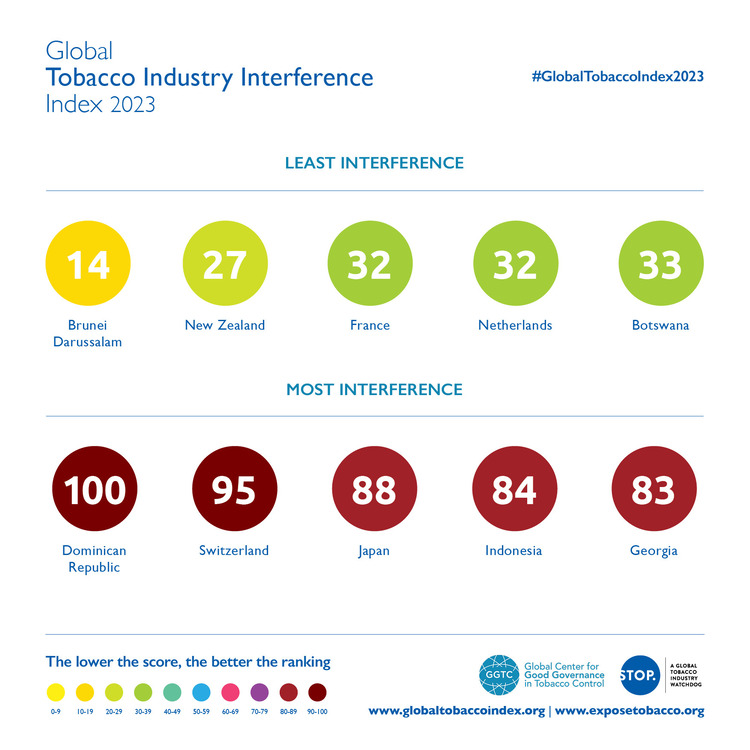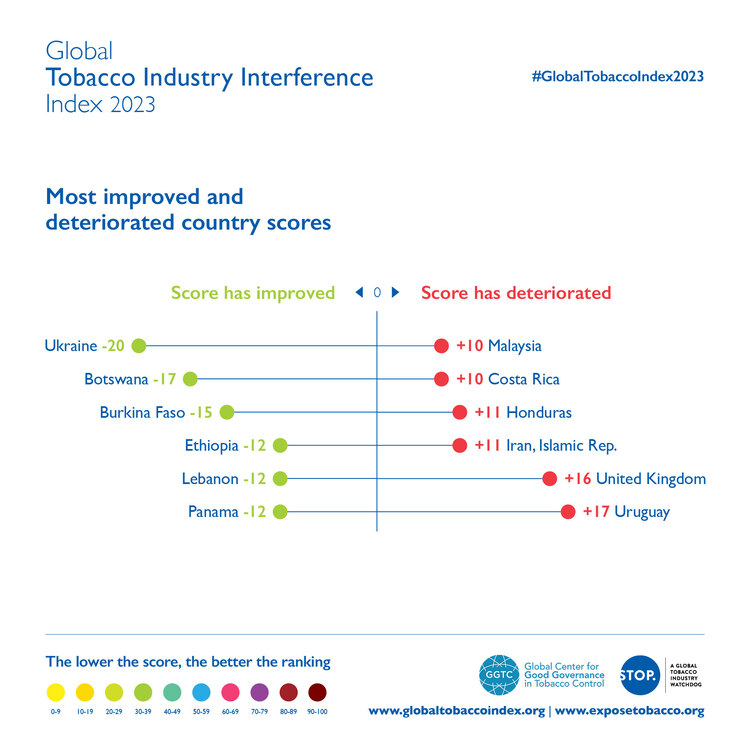
Tobacco industry interference in government tobacco control policies has increased in 43 countries over the past two years
Efforts to protect health policy from increased tobacco industry interference have deteriorated around the world, according to the latest global survey from the Global Tobacco Industry Interference Index.
The Index shows a worsening trend in industry interference worldwide – no country has been spared – with increased interference in government tobacco control policies reported in 43 of the 90 countries analysed. Countries with the highest level of interference are the Dominican Republic, Switzerland, Japan, Indonesia and Georgia.
The 2023 survey reveals a range of tactics from the tobacco industry, such as taking governments to court, offering financial and in-kind incentives to both governments and politicians, and obtaining lower taxes for new tobacco products that it framed as less harmful and smoke-free. Embassies of five countries – China, Germany, Italy, Japan and the UK – were persuaded to promote the tobacco industry in other countries.

Among countries whose rankings has shifted significantly is the UK, which the Index ranks as 21st globally when it comes to implementing and complying with measures designed to prevent the tobacco industry interfering with policymaking. It’s a drop from third position in 2021 and best overall ranking in 2019.
The survey notes unnecessary interactions between the tobacco industry and senior ministers from both the UK and Scottish governments, and the concerning choice to outsource the UK’s new track and trace system (designed to track tobacco products manufactured in or imported into the UK ) to a company with links to the tobacco industry.
The Index estimates that 124,908 UK deaths from tobacco in 2021 were caused primarily by the top three producers of tobacco: Imperial Brands, Japan Tobacco International and British American Tobacco.

In response to these findings, the World Health Organisation (WHO) has launched a new campaign called ‘Stop the lies’, which it sees as a vital initiative to protect young people from the tobacco industry and their deadly products, by calling for an end to tobacco industry interference in health policy. In a press release, the WHO states that ‘the tobacco industry has a long history of lying to the public, even insisting that smoking does not cause lung cancer’. Around 25 per cent of all cancers and more than 8 million deaths worldwide are attributed to smoking.




